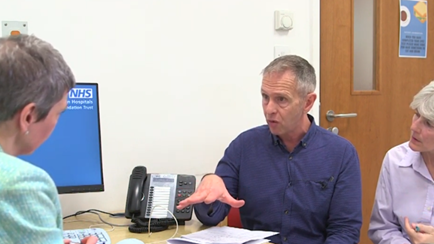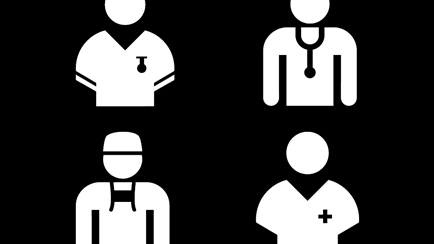Male Urology Learning Week 2023
Discover our new resources for primary care professionals with out Male Urology Learning Week content!

Take part in our comprehensive and FREE online courses and education material.
RegisterThe Education team is currently updating of some of the courses available for online learning, which may mean that courses that you were working on are now unavailable. Sorry for any inconvenience caused.
If you have any issues or need help, please contact the Education Team

Discover our new resources for primary care professionals with out Male Urology Learning Week content!

Head of Improving Care, Amy Rylance, presents the updated diagnostic pathway.
An online course for Clinical Nurse Specialists, Allied Health Professionals, and all other specialists who care for men with prostate cancer.

An overview of the current advances and future directions in practice for treating men with radiotherapy.

The learnings and experiences of a community-based service providing prostate cancer information and investigations for men of a BME background

A review of the current evidence, NICE 2019 guideline and tools to help you and your patients. Accredited by the Royal College of Surgeons of England for up to 2.0 CPD points.

This module is a patient-informed palliative care education resource for health care professionals. Using survey data of patient and family caregiver experience, it discusses how to identify, assess and manage unmet palliative care needs.
Conveying the potential risks and benefits of treatment options to those just given a diagnosis of low or intermediate risk prostate cancer can be challenging; for example, men and their families can be left with concerns about cancer progression that affect their preferences for Active Surveillance versus ‘immediate’ treatment, and, for those with intermediate-risk prostate cancer, their choice between treatments.